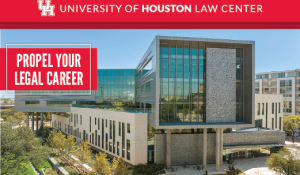Hi all,
This is my first post in the forum. I'm going to apply for some LLM programs in the US to start around August 2013 in the Pennsylvania/New York/Washington D.C. areas. I've already spoken with a number of law schools who say that despite my lack of an Honours degree, my experience would almost guarantee admission. To afford the tuition, I'm going to apply for a Fulbright scholarship here in Australia.
My issue is that I have two ideas that I'd like to pursue and I'm not sure which is the most viable.
IDEA 1 - ONLINE EDUCATION: Barry Currie recently became the ABA's legal education consultant, which should hopefully mean that online J.D.'s become more popular, and so too should online LLM's, just as Washington University has done in the last few days. At the moment in Australia there are a number of online Practical Legal Training (PLT) courses through which students undertake their 'clerkship/traineeship/articles'. It's a simulated learning environment. Unfortunately, there are a lot of issues with how they are still being run. In addition, the LLB is not run very well online in Australia either. I was considering an approach with the Fulbright scholarship whereby I indicate that I intend to study at NYU, and undertake an LLM that would allow me to focus on how effectively the online Executive LLM in Tax Law is being run by NYU.
IDEA 2 - PSYCHOLOGICAL INJURIES: I'm currently a prosecutor in my home State. I've done a lot of research and not once has an offender been prosecuted in Australia for causing a psychological injury to the victim (although the current wording of the legislation would allow for it). It has been successfully undertaken extensively in New Zealand, a couple of times in England, and even once in Fiji. Unfortunately, I haven't been able to find any US case law on the topic, but I did think that I could indicate to the Fulbright Commission that I intend to attend UPenn and utilise their famous 'cross-disciplinary' approach to study Law and Criminology and hopefully bring back knowledge required to prosecute individuals for intentionally or recklessly causing psychological injuries.
Can anyone recommend a way forward? Or offer some guidance on either of the two above ideas?
Kind regards,
Paul
Australian LLM Applicant
Posted May 11, 2012 07:27
Hi all,
This is my first post in the forum. I'm going to apply for some LLM programs in the US to start around August 2013 in the Pennsylvania/New York/Washington D.C. areas. I've already spoken with a number of law schools who say that despite my lack of an Honours degree, my experience would almost guarantee admission. To afford the tuition, I'm going to apply for a Fulbright scholarship here in Australia.
My issue is that I have two ideas that I'd like to pursue and I'm not sure which is the most viable.
IDEA 1 - ONLINE EDUCATION: Barry Currie recently became the ABA's legal education consultant, which should hopefully mean that online J.D.'s become more popular, and so too should online LLM's, just as Washington University has done in the last few days. At the moment in Australia there are a number of online Practical Legal Training (PLT) courses through which students undertake their 'clerkship/traineeship/articles'. It's a simulated learning environment. Unfortunately, there are a lot of issues with how they are still being run. In addition, the LLB is not run very well online in Australia either. I was considering an approach with the Fulbright scholarship whereby I indicate that I intend to study at NYU, and undertake an LLM that would allow me to focus on how effectively the online Executive LLM in Tax Law is being run by NYU.
IDEA 2 - PSYCHOLOGICAL INJURIES: I'm currently a prosecutor in my home State. I've done a lot of research and not once has an offender been prosecuted in Australia for causing a psychological injury to the victim (although the current wording of the legislation would allow for it). It has been successfully undertaken extensively in New Zealand, a couple of times in England, and even once in Fiji. Unfortunately, I haven't been able to find any US case law on the topic, but I did think that I could indicate to the Fulbright Commission that I intend to attend UPenn and utilise their famous 'cross-disciplinary' approach to study Law and Criminology and hopefully bring back knowledge required to prosecute individuals for intentionally or recklessly causing psychological injuries.
Can anyone recommend a way forward? Or offer some guidance on either of the two above ideas?
Kind regards,
Paul
This is my first post in the forum. I'm going to apply for some LLM programs in the US to start around August 2013 in the Pennsylvania/New York/Washington D.C. areas. I've already spoken with a number of law schools who say that despite my lack of an Honours degree, my experience would almost guarantee admission. To afford the tuition, I'm going to apply for a Fulbright scholarship here in Australia.
My issue is that I have two ideas that I'd like to pursue and I'm not sure which is the most viable.
IDEA 1 - ONLINE EDUCATION: Barry Currie recently became the ABA's legal education consultant, which should hopefully mean that online J.D.'s become more popular, and so too should online LLM's, just as Washington University has done in the last few days. At the moment in Australia there are a number of online Practical Legal Training (PLT) courses through which students undertake their 'clerkship/traineeship/articles'. It's a simulated learning environment. Unfortunately, there are a lot of issues with how they are still being run. In addition, the LLB is not run very well online in Australia either. I was considering an approach with the Fulbright scholarship whereby I indicate that I intend to study at NYU, and undertake an LLM that would allow me to focus on how effectively the online Executive LLM in Tax Law is being run by NYU.
IDEA 2 - PSYCHOLOGICAL INJURIES: I'm currently a prosecutor in my home State. I've done a lot of research and not once has an offender been prosecuted in Australia for causing a psychological injury to the victim (although the current wording of the legislation would allow for it). It has been successfully undertaken extensively in New Zealand, a couple of times in England, and even once in Fiji. Unfortunately, I haven't been able to find any US case law on the topic, but I did think that I could indicate to the Fulbright Commission that I intend to attend UPenn and utilise their famous 'cross-disciplinary' approach to study Law and Criminology and hopefully bring back knowledge required to prosecute individuals for intentionally or recklessly causing psychological injuries.
Can anyone recommend a way forward? Or offer some guidance on either of the two above ideas?
Kind regards,
Paul
Posted May 13, 2013 05:08
Fulbright scholarships are very hard due to extreme international competition.
I think both are good ideas for thesis. However, I personally would favor the latter.
I don't think US Universities like the idea of online education at all. Since, once generalized, it could give foreign lawyers to apply to domestic bar exam and gain admission. Thus, taking jobs for domestic candidates by overseas candidates and rocketing the US unemployment rate.
Good luck on your application!
Fulbright scholarships are very hard due to extreme international competition.
I think both are good ideas for thesis. However, I personally would favor the latter.
I don't think US Universities like the idea of online education at all. Since, once generalized, it could give foreign lawyers to apply to domestic bar exam and gain admission. Thus, taking jobs for domestic candidates by overseas candidates and rocketing the US unemployment rate.
Good luck on your application!
I think both are good ideas for thesis. However, I personally would favor the latter.
I don't think US Universities like the idea of online education at all. Since, once generalized, it could give foreign lawyers to apply to domestic bar exam and gain admission. Thus, taking jobs for domestic candidates by overseas candidates and rocketing the US unemployment rate.
Good luck on your application!
Related Law Schools
Full Profile
Philadelphia, Pennsylvania
983 Followers
511 Discussions
Hot Discussions
-
Cambridge LL.M. Applicants 2024-2025
Oct 30, 2024 142,347 544 -
Georgetown LLM 2024/2025 applicants
Nov 16 09:22 PM 40,116 209 -
MIDS - 2024-25
Nov 15, 2024 1,838 16 -
Harvard LLM 2025-2026
Nov 20 09:34 PM 1,693 7 -
Indian Tribes as US Jurisdictions of law attorney admission?
Nov 08, 2024 765 6 -
LL.M. Scholarship Rates?
Nov 09, 2024 2,503 5 -
LLM in ADR
Oct 23, 2024 390 4 -
LLM in Germany 2024
Nov 09, 2024 823 4



